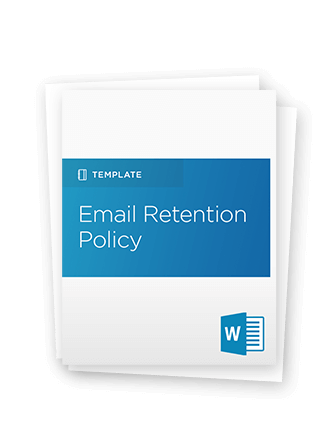Email Risks, Rules, and Compliance in Government Work: Are You Ready?

The daily conversation around the water cooler these days is the national surveillance of our personal communications. Prior to that, we worried about what information Internet cookies collected, and what information a large search engine might be amassing about us.
If you have been working in a government setting, however, you probably have been aware that – with some exceptions – nearly everything you write and say as part of your job is open to the public.
That’s right, government work (including local, school, county, cities, state, and public colleges) falls under open records laws, the Freedom of Information Act (FOIA), and more. From taped conversations in the Oval Office to email messages at a public community college, public access is allowed:
- The Freedom of Information Act of 1966 (FOIA.gov) allows anyone “a right, enforceable in court, to obtain access to federal agency records, except to the extent that such records (or portions of them) are protected from public disclosure by one of nine exemptions or by one of three special law enforcement record exclusions.” Accessible records include email. In 2012, 651,254 FOIA requests were received. Of those, there is still a backlog of 71,790.
- Reporters Committee for Freedom of the Press describes the open meeting laws that followed the enactment of FOIA six years later, the Federal Advisory Committee Act and, in 1976, the Government in the Sunshine Act, both intended to increase government transparency and accountability.
- Rules 26 and 34 of the Federal Rules of Civil Procedure cover the legal discovery of electronic information, according to The Berkman Center for Internet and Society at Harvard Law School.
Many states also have their own open meeting and/or open records laws on their books.
Email risks and compliance in government agencies
The Berkman Center’s somewhat shocking analysis is this: “Almost all agree that digital discovery means more complete access; email has been called a ‘truth serum,’ access to which could expose all manner of wrong-doing.”
The Berkman Center goes on to outline the key critical challenges in the new world of digital discovery which affects everyone in government work:
- The potential time and costs involved in identifying specific data stored and then retrieving it, especially if only backup tapes are used;
- If different systems are used, the electronic data may not be readable by the other party or parties; and,
- As hinted by the “truth serum” analysis, an email search may uncover quite a bit more information than originally intended – with all the attending consequences. Moreover, email that was thought to have been deleted may yet turn up on backup tapes.
As if to underscore the need for a real, secure, and reliable email archiving system for your government emails, the ACLU is suing the police chief in Lincoln, Nebraska to obtain 10-year-old records (reported online at Columbustelegram.com on December 28, 2013).
To ensure that you are compliance-ready, look no further than Intradyn. We know how important compliance is for a government agency. We provide reliable email archiving and e-discovery solutions for any size agency. For more information, please contact us.

